What is the Difference Between a Shared Opinion and a Defamatory Statement?
It’s important to note that a statement of opinion is not considered defamatory unless it is presented to a third party as a fact. This is because courts have a great interest in protecting the public’s freedom of speech. For example, if you write an article in which you state, “it seems to me that Jane Doe doesn’t care about the students she teaches,” that would likely not be considered defamation Alternatively, if you write in an article, “Jane Doe doesn’t care about the students she teaches,” that could be considered defamatory.
It is important to note that merely including phrases such as “I think” or “I believe” doesn’t automatically make a statement a protected opinion. In fact, any statements made with these phrases can be considered defamation if the person who made the statement is aware that it is false.
What is the Difference Between Libel and Slander?
There are two types of defamation: libel and slander. Libel is written/published defamation, while slander is spoken defamation. Aside from text, libel can include fake pictures or video.
Generally speaking, libel is easier to prove since it exists in a tangible medium such as an email, newspaper, or picture. Since slander is based upon what is said verbally to a third party, it can be more difficult to prove its occurrence and therefore harder to recover damages for it.
What Are Some Examples of Libel and Slander Under Florida Defamation Lawsuits?
Here are a couple of examples of libel and slander (respectively) in the context of the workplace:
- During a meeting with his boss, John’s coworker, Bob started a false rumor that John stole property from the company. As a result his boss fires him. This could be considered libel, as the false rumor was spoken to a third party. Since John suffered damages (losing his job, pay, and any benefits) as a result of the false rumor, he could sue Bob. Even if John’s boss heard the rumor secondhand and fired John, it could still be considered libel. It doesn’t matter whether or not Bob shared the false rumor directly with his boss. This is because Bob knows that the rumor is false, tells a third party, and the subject (John) suffers damages.
- High school teacher Rachel has romantic feelings for her assistant principal, Bill. However, he rejects her. Despite knowing it’s not true, Rachel sends an email to several other teachers at the school, stating that Bill is engaging in inappropriate relations with a student. The school district finds out and the assistant principal is fired. Since this communication is written, it could be considered slander (whether Rachel emails other teachers or the school district directly). This is because Rachel knows that the statement is false, tells a third party, and the subject (Bill) suffers damages.
Can I Sue for Defamation and Slander?
You may be wondering what remedies are available in defamation lawsuits. If a false statement has harmed you, you may have the right to sue for defamation. If you are able to prove defamation through libel or slander, you may be able to recover monetary damages in the amount of your actual monetary losses or injuries, which may cover:
- Lost earnings
- Lost earning capacity
- Impairment to reputation and standing in the community
- Pain and suffering
- Personal shame and humiliation
The plaintiff may also be entitled to punitive damages if the defamatory statement was made to be deliberately harmful. Punitive damages are intended to punish the wrongdoer for highly negligent acts or intentional conduct. Examples of this would be if the statement were made for the purpose of retribution or personal gain. It is ultimately the court’s decision as to whether punitive damages should be awarded.
Also, in limited circumstances, courts will grant plaintiffs injunctive relief. Injunctive relief, while rare, is a court-ordered act or prohibition against an act or condition, which has been requested and sometimes granted. When monetary damages will not be enough to compensate the plaintiff for his or her damages, injunctive relief can serve as a temporary suspension of a publication before a final judgment is reached.
For instance, if you are allowed to proofread an article that is about to be posted, but feel that it includes defamatory statements about your family, you can ask for injunctive relief. This will stop the article from being published until a hearing can be held to determine if it is, in fact, defamatory.
What is Needed When Proving Defamation?
In order to prove defamation, a plaintiff must be able to demonstrate the following elements:
- Someone made a statement;
- The statement was distributed in oral or written form to a third party;
- The statement caused you to suffer an injury or damages;
- The statement that was made was false; and
- The statement that was made was not protected (e.g. it was not an opinion and/or it was not true).
Truth is an “absolute defense” to defamation. If the statement shared can be proven true there is no grounds for recovering any damages, as the truth cannot be considered defamatory. It’s also important to note that any statements that were made at a trial or during a deposition are privileged and are therefore protected – even if defamatory.
Proving that you suffered an injury or damages is often one of the most difficult to do. Losses resulting from a defamatory statement could include a variety of things, such as the following:
- You were denied a job
- You are unable to secure a job
- You were terminated from a job
- You were denied an opportunity
- You now require medical treatment to cope with the outcome of the defamatory statement
Defamation, Privacy, and the First Amendment
Since our government values the freedom of speech that the First Amendment affords us, it also places much freedom on the public’s ability to speak out about elected officials and other public figures. Public figures receive less protection from defamatory statements and have a higher burden of proof when it comes to winning a defamation lawsuit.
When a public official or celebrity experiences a false and harmful statement, the official or celebrity must not only prove the aforementioned five elements, but must also prove that the statement was made with “actual malice.” Actual malice occurs when someone makes a statement that they knew was untrue at the time that it was made or they had a reckless disregard for its truth.
This actual malice requirement is due to the fact that public figures can expect less of a right to privacy than those who do not choose to place themselves in the public. In other words, it comes with the territory.
Who Can Be Held Liable for Defamation?
It’s relatively clear that if proven, the individual who makes the defamatory statement can be held liable for defamation. However, it’s important that people understand that they can commit defamation simply by repeating a defamatory statement that someone else made.
For instance, imagine your ex-boyfriend (or ex-girlfriend) falsely tells a large group of your neighbors that you served time in prison for murder. Among this group is a podcast host who records and plays the whole conversation on her podcast. In this situation your ex could be found guilty of slander, while the podcast host could be found guilty for libel. You could bring a claim against each party separately.

.avif)

















.avif)


